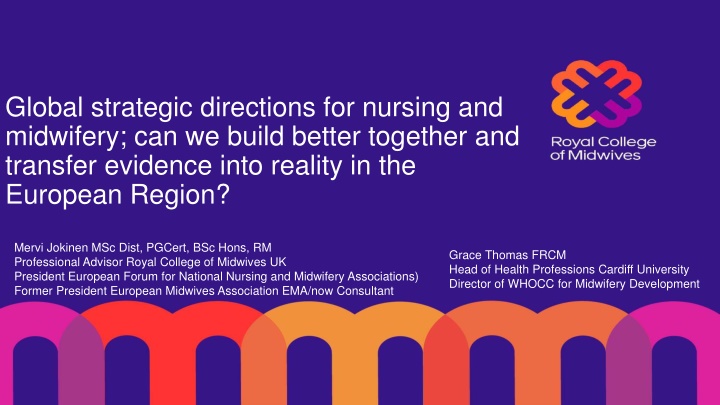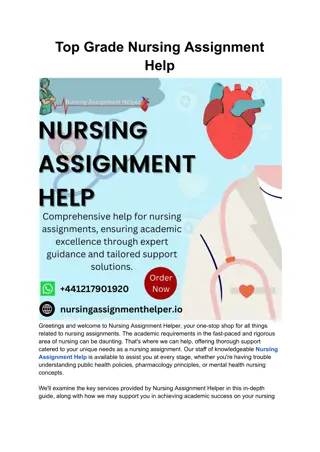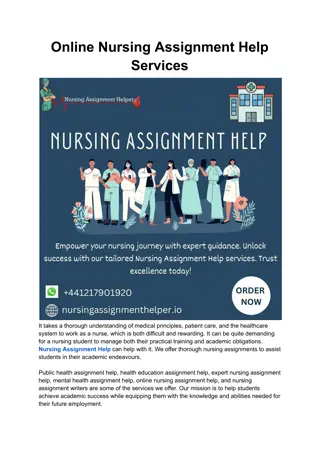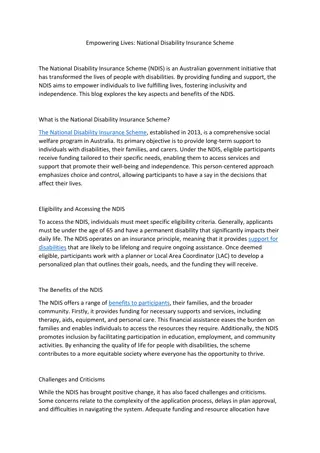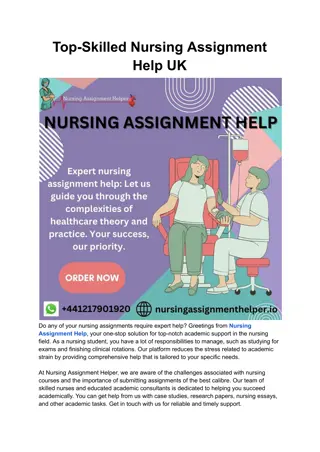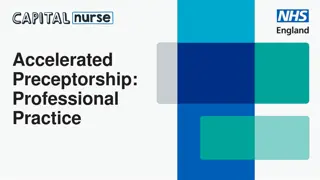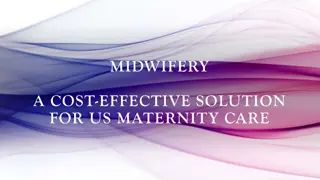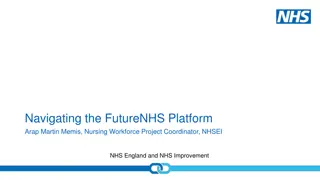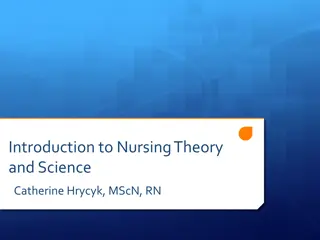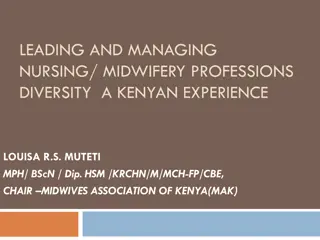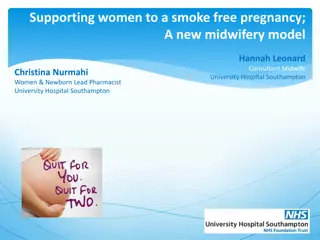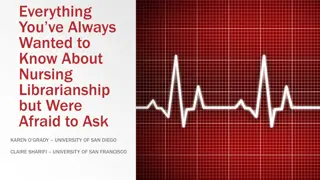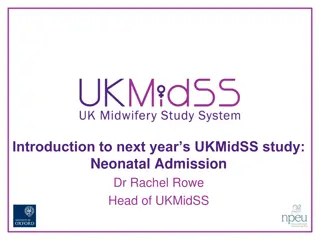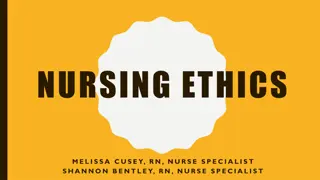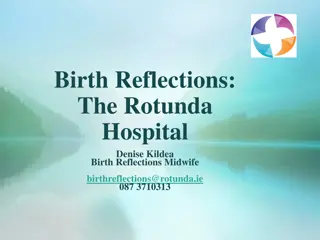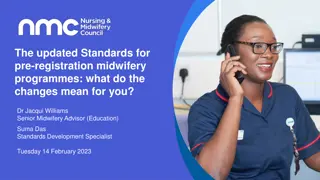Enhancing Nursing and Midwifery in the European Region: Building Better Together
Exploring the global strategic directions for nursing and midwifery, this content highlights the collaborative efforts to transfer evidence into reality in the European Region. Key challenges and priorities include addressing maternal health issues, humanizing birth, patient safety, human rights, and resource management. The focus is on promoting high-quality maternity care, advocating for women's health, and engaging in international partnerships to advance the professions.
Download Presentation

Please find below an Image/Link to download the presentation.
The content on the website is provided AS IS for your information and personal use only. It may not be sold, licensed, or shared on other websites without obtaining consent from the author.If you encounter any issues during the download, it is possible that the publisher has removed the file from their server.
You are allowed to download the files provided on this website for personal or commercial use, subject to the condition that they are used lawfully. All files are the property of their respective owners.
The content on the website is provided AS IS for your information and personal use only. It may not be sold, licensed, or shared on other websites without obtaining consent from the author.
E N D
Presentation Transcript
Global strategic directions for nursing and midwifery; can we build better together and transfer evidence into reality in the European Region? Mervi Jokinen MSc Dist, PGCert, BSc Hons, RM Professional Advisor Royal College of Midwives UK President European Forum for National Nursing and Midwifery Associations) Former President European Midwives Association EMA/now Consultant Grace Thomas FRCM Head of Health Professions Cardiff University Director of WHOCC for Midwifery Development
We use our role to promote, support and influence the development of the midwifery profession and high-quality maternity care internationally
The RCM engages internationally in three main areas: REPRESENTATION & LEADERSHIP We bring the voice of midwives to other professional organisations, NGOs, governmental bodies, and civil societies. ADVOCACY Voice of midwives is influential by holding leadership positions and advocate for safe SRMNAH for women & girls TECHNICAL EXPERTISE Expert advice in international and European projects and collaborations including policy, research, and dissemination
Policy The RCM international teamwork in Europe: EMA WHO CC RCM ICM Collaboration European projects Research European Forum for Nursing & Midwifery Associations Advocacy
WHO EUROPEAN REGION 53 countries, covering a vast geographical region from the atlantic to the pacific oceans.
Challenges in WHO European Region Increased maternal age, obesity, infertility treatments, medical complications, perinatal mental health Population needs Humanising birth as life event Patient safety includes emotional safety Human rights Care for pregnant refugees, migrants, asylum seekers Migration Careful resource management skill mix and use of technology Gender inequalities Women and midwives health literacy / status at work Resources
Health system delivering care Woman-centred respectful care is one of our key priorities It should mean the women can gain greater control over decisions and actions affecting their health during their pregnancy and childbirth We often see when women are asking for different care package it may be provided by private care but not public health care therefore increasing inequality Absence of midwives in primary care teams and in some countries in the health system itself A
Leadership Jobs Education Service delivery EURO Regional Roadmap for nursing and midwifery (2021)
What does the WHOCC do? We support WHO Europe in scaling up and transforming midwifery education across 53 member states of Europe. Why? TO IMPROVE CARE FOR MOTHERS & BABIES By: Strengthening the evidence base on midwifery education Assisting WHO in capacity building and strengthening midwifery education
Midwifery Assessment Tool for Education MATE https://www.euro.who.int/en/health-topics/Health-systems/nursing-and- midwifery/publications/2020/midwifery-assessment-tool-for-education-mate-2020
Partnership working and leadership Harmonising regulation, education and workforce data across a large region, in spite of national member state challenges, can be strengthened by collaborative work between Midwifery Associations and WHO regional leaders. The evidence is clear: Midwifery is a vital solution to the challenges of providing high-quality maternal and newborn care for all women and newborn infants, in all countries (Prof Mary Renfrew The Lancet June 2014 Executive Summary) A
